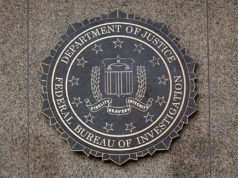
Rumors are flying high regarding the closure of the State Department’s only cybersecurity office by White House after Christopher Painter, the Coordinator for Cyber Issues, decided to quit at the end of the month after spending more than two decades in the office.
Painter’s office, which reportedly handles negotiations with other countries on political infrastructure protection, development of cyber norms and other related issues, may be closed by Secretary of State Rex Tillerson who plans to converge the cyber security office with an office in Bureau of Economic and Business Affairs.
Painter, who earlier held top positions in National Security Council, Federal Bureau of Investigation, and the Justice Department, may return to the DOJ. A successor is yet to be found, but as per Tim Maurer, co-director of the Cyber Policy Initiative at the Carnegie Endowment for International Peace, the appointment is quite “an important and urgent task.” Painter’s departure would also make the State Department’s responsibility of presenting an international cyber strategy to Trump by late September an uphill task.
Reacting to the news of Painter leaving the office, James Lewis, a cyber expert at the Center for Strategic and International Studies said, “Chris will be hard to replace. This will be an easy one to mess up.”
Other cyber-policy experts also feel that the shutting down of the office will bear negative impact on the cybersecurity issues. Jason Healey, a senior cyber researcher at Columbia University, said that the loss of Painter would be a great loss to United States. He further added that shutting the cybersecurity office “would mean the United States would be the only major country without a lead diplomat to discuss cyber norms and trying to reduce the ever-escalating cyberattacks we see around the world. It is not just a shame if the U.S. were to surrender that leadership, but would mean the future internet will have more Russian and Chinese characteristics.”






















